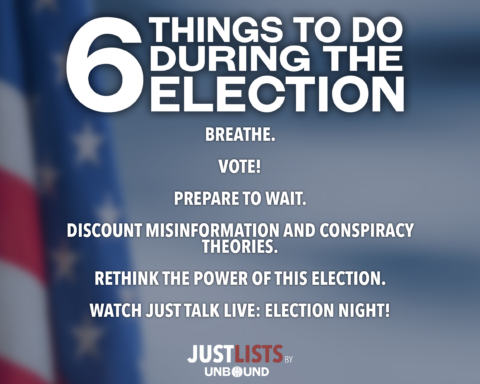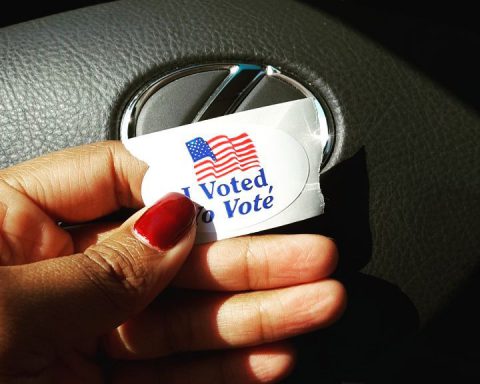Warren gave as her core motto at the end of the last debate a reference to Matthew 25, seeking to recognize herself and the divine even in the “least of these.” Whatever the ideological fine points, there she spoke to the egalitarian core of the Democratic soul. While her goal might not now be sweeping the Democratic field in what is seen as a two person race, her clearest value to that democratic—and not necessarily socialist—egalitarian vision would be to stay in the primary race, even as Mike Bloomberg drops out. Momentum, or herd behavior, should not overcome long-term presence of mind.
The word, “electability,” is a code word for fear. Fear of losing to Trump, who appeals very well to the lower register of emotions. Fear of the consequences of such a loss for future generations lost to intensifying climate change, grinding inequality, and the diseases of despair that actually ravage Trump’s supposed red state rural base. Biden represents a needed different set of emotions, decency and loyalty among them. But he also attracts some of those afraid of the genuine complexity of issues, who prefer the comfort of nostalgic slogans. For that older part of the Democratic electorate, and certainly for the Republican side, the slogans of Bernie Sanders are fearsome as well, even if not as radical as advertised. Matthew Sitman, in Commonweal, makes a daunting case for the role of fear in overlooking Biden’s campaign weaknesses.
Sexism plays an undeniable role in US politics and Warren’s staying in, deliberately representing a different style, would say something about the brittleness of our current elderly male politics—which include the erratic and forgetful Trump.
When Elizabeth Warren seemed to be leading the Democratic field, not long before Bernie Sanders suffered his heart attack, some claimed she was too strident, like a teacher who was too strict. As it happens, Warren has shown she is quite likeable; it is merely foolish competing plans that she doesn’t suffer gladly. The dilemma for all women in politics is not seeming either too emotional (or weak) or too rational (and threatening).
Despite the confusion of the debates, her big picture analysis and solutions dominated: on an effective wealth tax, on strengthening the middle class, on a green new deal, on correcting the racial wealth gap, on going after corruption, on reviving a non-military foreign policy with human rights and mutually beneficial treaties… When she speaks, she makes sense because she does her homework. Bernie may have the right direction; she does the math. And on the challenge of transitioning to a new social covenant for medical care, she was willing to reconsider and refine an approach to make it less disruptive but no less inclusive. But her smarts have been used against her and it is important to see how this works.
In The Witch and The Clown (1987), by Ann and Barry Ulanov, a woman can be perceived as a witch when power is projected upon her, fairly or unfairly. She may well not want more power in a relationship, and she may perceive the resentment her success may bring. For the Ulanov’s, Jungian psychologists, there is an archetypal pattern involved that is incomplete without understanding the witch’s opposite, the clown, the man who has little power or who gives his power away. A political context obviously has many dynamics, but clearly men who are intimidated by her ideas fear being revealed as clowns. By emphasizing that she is fighting for all families, Warren may have quieted some of this clownophobic anxiety.
Still, granting that even as Senator Warren will continue to show Donald Trump to be clownishly laughable in his childish lies and buffoonish vanity, there is another dynamic that Warren’s candidacy reveals. The model for strength in two of the men she faces now, and in Trump, is Aries, the war god of Greek mythology. Aries is not a strategic fighter, like Athena, but the guy who gets red-faced and pumped up, trying to dominate verbally by shouting simple slogans (or insults). Politics is indeed a struggle, and it requires passion, but also the wisdom. Here Warren is as smart as Obama, but more outgoing and able to think outside the boxes about lasting structural change. For Warren to stay in the race is to keep raising the bar for better thinking, as she did against the plutocratic default position of Mike Bloomberg, weakening his Midas candidacy decisively.
Faced with two 77-78 year old men set in their thinking, who argue like Aries, Warren represents a younger Athena who can be creative as well as combative. Sure, for reasons of raising a family, her career track was a bit slower than many men, so her 70 is only relatively younger. But her thinking is genuinely new, and it takes into account the thinking of Republicans, though she doesn’t refer much to her intellectual and ethical conversion from her previous party.
Would she be spoiling Bernie’s chances by staying in the race? Perhaps. But she would be giving more value to the voters in the later primaries, so that her raison de continuer and theirs would be joined. And in a three person field, if either of the other stumbles, she would remain a very meaningful choice.
Chris Iosso is the General Editor of Unbound and the Coordinator for the Advisory Committee on Social Witness Policy in the Presbyterian Church USA.






Unbound Social